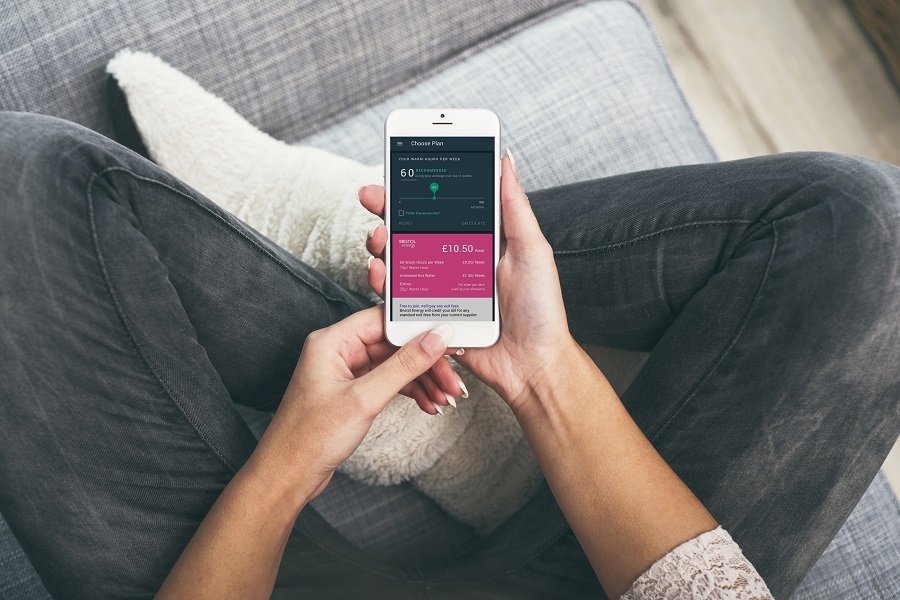Bristol Energy has partnered software company Eliq for the development of an AI-enabled energy monitoring app, having secured a chunk of a £6.5 million pot of government funding.
The funding comes from the Department for Business, Energy and Industrial Strategy’s (BEIS) Smart Energy Savings competition.
The app is to use data from smart meters and a self-learning algorithm to deliver personalised energy advice for consumers to help reduce their carbon emissions and cut energy bills.
The advice ranges from appliances left on standby to switching off heating to save carbon, and the tone and style of the messages can be adapted using customer segmentation data, enabling a more tailored and personalised service that relates to consumers’ homes and lifestyles.
The new function will form part of Bristol Energy’s existing mobile app.
The project has two phases, firstly designing and building the app, and secondly participant recruitment for a one-year trial. That trial is to be offered on a voluntary opt-in basis, aiming to validate the savings generated by the technology.
The app combines Eliq’s energy insights engine with expertise from the Centre for Sustainable Energy in Bristol to map the most relevant energy savings advice to each customer.
The ultimate aim of the new feature is to strengthen consumer engagement, making consumers more loyal to their supplier and more likely to adopt new energy savings products, Eliq said.
Håkan Ludvigson, CEO and founder of Eliq, said: “Customers today are fed up with the generic advice provided by many utilities’ apps and home energy reports.
“With this technology, we are pushing the limits for personalised energy content.”
The Smart Energy Savings competition was launched by BEIS earlier this year to fund new technology that helps to bring savings to UK homes from the country’s smart metering programme. However, the date by which smart meters must be rolled out has been pushed back to 2024 after the prior date of 2020 was deemed unfeasible.
Andrew Coleman, head of smart at Bristol Energy, said the app is a “first of its kind” that could transform consumer behaviour.
“We’re using smart technology to provide personalised insight that is tailored to customers’ homes, their motivations and of course, their energy consumption.”
Bristol Energy is also co-leading the Bristol City Leap project along with Bristol City Council. The project aims to make the city net zero by 2030 and is currently raising £1 billion for the delivery of this ambition.





